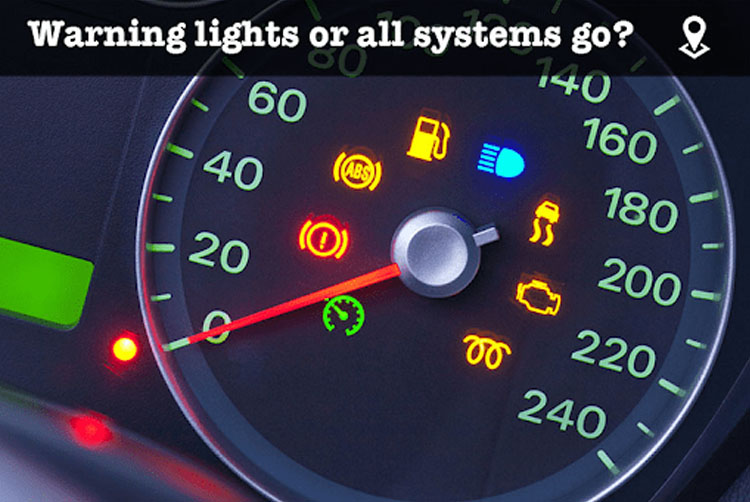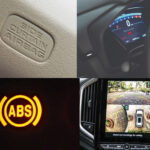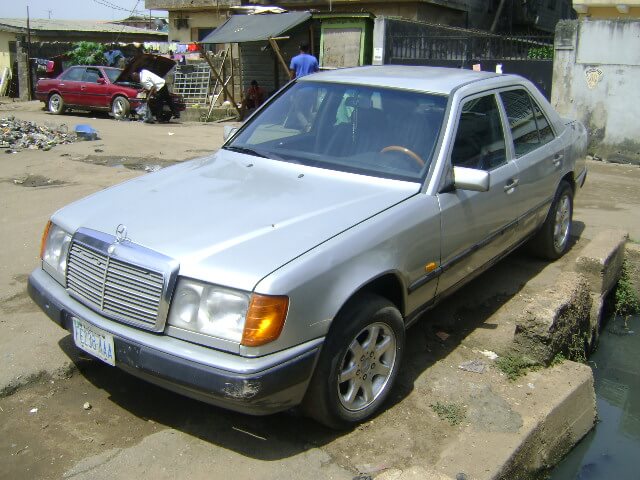When it comes to your car, it’s essential to pay attention to warning signs that something might be wrong. Your car often gives you hints when it needs repairs, and recognizing these signs can prevent bigger problems down the road. By understanding these warning signs and addressing them promptly, you can ensure your safety on the road and prevent costly repairs in the future.
In this article, we’ll dive into eight warning signs that your car needs repair.
1. Warning Lights
Some cars have lights called engine diagnostic or check engine lights that are usually turned on to indicate a problem. Some are set to come on after driving a certain distance to remind you to get a checkup. It is important to look into the issue as soon as you see one of these lights. Some common warning lights include the check engine light, the oil pressure light, the battery light, and the ABS light. The check engine light might mean problems like a loose gas cap or faulty sensors. If you ignore the low oil pressure indicated by the light, it could harm your engine. The battery light could signal a problem with the alternator or battery. And the ABS light might indicate issues with the anti-lock brake system.
2. Weird sounds from the brake
If you hear weird sounds like squealing or grinding when you press the brakes, it means the brake pads might be worn out. It’s important to take your car to the auto shop right away to check the brakes because having brakes that work well is super important for your safety. When brakes get older, they can stop working as well and start making strange noises. If you hear screeching or squealing, it means the brake pads are wearing out and need to be replaced. If your brakes feel shaky or wobbly, it could mean there are different problems, like worn brake pads, issues with brake fluid, or alignment troubles. These are all signs that you should get your car checked by auto repair experts.
3. Vibrations
Shakiness or vibrations could mean there are problems with the drivetrain, suspension, wheels, or tyres. For example, if your steering wheel shakes, there might be something wrong with the wheels or tyres. If you feel vibrations in the floor or seat, it could be a sign of a problem with the drivetrain or suspension.
4. Operational Efficiency
If your car isn’t operating right, it could be due to various problems. Slow acceleration, less mileage, or weaker power are signs of poor performance. For example, if your car is slow to speed up, it might mean the fuel system or transmission isn’t working well. If your car is using less gas than usual, there might be an issue with the engine or fuel system. Less power could signal different issues, like a dirty air filter or a sensor not working right.
5. Starting Issues
If your car has trouble starting, it could be a sign of several problems. For example, if you turn the key and nothing happens, it might mean a dead battery or a faulty starter. If your engine cranks slowly or makes strange noises when you try to start it, it could indicate issues with the battery, starter, or even the fuel system. Ignoring starting problems can lead to more serious issues down the road, so it’s essential to address them promptly. If you’re experiencing difficulties starting your car, it’s a good idea to have it checked by a mechanic to identify and fix the problem to avoid a more serious problem.
6. Electrical issues
If you’re experiencing electrical problems in your car, they could manifest in various ways. For instance, if your lights, radio, or power windows aren’t working correctly, it might indicate a problem with the electrical system. Flickering lights, blown fuses, or a dead battery are common signs of electrical issues. Additionally, if you notice strange smells, smoke, or sparks coming from your vehicle’s electrical components, it’s crucial to address the problem immediately to prevent potential fire hazards. Electrical problems can be complex and require professional diagnosis and repair, so it’s essential to seek assistance from a qualified mechanic or auto electrician.
7. Gear shifting
Difficulty shifting gears, grinding noises, or a clutch pedal that feels soft or spongy are common signs of transmission issues. Additionally, if you notice slipping gears, delayed or rough shifting, or the transmission refusing to engage, it could signal more serious transmission problems. Ignoring gear shifting issues can lead to further damage to your vehicle’s transmission system, resulting in costly repairs. If you’re experiencing problems with gear shifting, it’s crucial to have your car inspected by a qualified mechanic immediately.
8. Unusual smells
Strange smells from your car can mean different things. If you smell something burning, it could be a brake problem. A sweet smell might mean there’s a coolant leak, and a strong gasoline smell could be a fuel system issue. Whatever the smell, it’s important to have a mechanic check your car to stop any more damage and make sure you’re safe on the road.
Conclusion
Staying alert to the warning signs that your car needs repair is crucial for your safety and the longevity of your vehicle. Whether it’s unusual sounds, vibrations, starting issues, electrical problems, gear shifting difficulties, or strange smells, addressing these issues promptly can prevent further damage and ensure smooth operation. Don’t ignore these signs; instead, consult a qualified mechanic to diagnose and fix the problem. By taking proactive steps to maintain your car, you can enjoy worry-free driving and avoid unexpected breakdowns on the road.
Have 1 million naira and above to Buy or Sell Cars In Nigeria? Check carlots.ng
All rights reserved. Reproduction, publication, broadcasting, rewriting, or redistribution of this material and other digital content on carmart.ng is strictly prohibited without prior express written permission from Carmart Nigeria - Contact: [email protected]







